US food giant Rich Products has set out to expand its UK, Europe and Middle East presence with a major investment in a new production centre in England
On a piece of Hampshire land the size of 11 football pitches, Rich Products is aiming to shape the future of the UK sweet bakery market.
The 13-acre site is the location of a new, purpose-built factory designed to be future-proof for the next 10 to 15 years. Housing six production lines and a state-of-the-art development kitchen, it is located in Andover, 30 miles inland from Southampton and 3,500 miles from where the Rich Products story begins.
The company’s origins lay in Buffalo, New York, in the 1940s. With post-war America suffering a shortage of dairy cream, founder Robert Rich developed a soy bean-based whipping cream. From the success of this came expansion into other food markets, including bakery, and a global business that operates in more than 100 countries and is still run by the Rich family.
“The UK was one of Rich’s first international ventures,” explains UK & EME managing director David Hunt, who joined Rich in 2006 and has spearheaded development of the new Andover site.
“It started in the 1990s with the export of cream-based products, then we started to realise there were bigger opportunities, so set up an office in Stratford-upon-Avon and started co-packing cookie products.”
By 2002, the company was selling primarily into in-store bakeries, and built its first UK manufacturing site, in Hartlebury, near Kidderminster.
“We brought chewy American-style cookie dough to this country – it really wasn’t prevalent in the UK market at the time.”
Three years later, Rich bought David Powell Bakeries in Hampshire, which enabled it to diversify its range to include muffins, buns and shortbread.
“This gave us access to some different products and customers – it was a good marriage,” says Hunt, whose remit when he joined Rich was bringing the two businesses together.
At that time, the combined company was turning over £13m. Today, through organic growth, it is turning over £45m – 90% through production of own-label lines for retail and foodservice customers, and 10% through Mars-branded cookies.
And Rich has big ambitions to grow its business further by expanding in the UK, Europe and the Middle East. These ambitions are a key reason for the consolidation of Rich’s three manufacturing sites – Hartlebury, Fareham and Portchester – into the new facility in Andover.
“We had reached a point where capacity would become a problem and, while we did some great things, the total cost base didn’t support the level of growth we felt was available,” says Hunt.
Working with consultants, the company took a “hard look” at the market and where it would be going in the next 10 to 15 years.
“The strategic question was how far we could scale it, and the conclusion was that there was a significant opportunity in the UK and further ahead into Europe,” Hunt explains.
The plan had to ensure the cost base was right, which involved consolidation, and that production lines were designed so they could produce at scale, but retain the ability to innovate and finish what Hunt describes as “essentially craft products”.
Building Rich’s commercial and marketing capabilities has been a focus, alongside the new site, with the company bringing in new senior figures in recent months, including marketing director John Want, innovation and development director Hazel Tomkinson, and commercial director John Moore, who have all previously worked at Adelie Foods.
%%Quote_58%%
A key consideration for the new factory location was finding somewhere close enough to an existing Rich site so that staff could move with the business. Andover was the nearest suitable site to Rich’s factory in Fareham.
“We wanted enough land, and we wanted to preserve skills as much as we could,” says Hunt. “We’ve got a lot of great associates who have been with us a long time, and wanted to bring those skills with us.”
He adds that “a good number” of staff have transferred from Fareham to Andover, but the consolidation has brought a net reduction in numbers. Hartlebury shut last month, and Hunt says the team performed well right up to the day it closed.
“We have done a lot in terms of consultation, trying to accommodate as many people as we can, helping with giving support and a lot of notice – we have been open and honest with people,” he adds.
There will be 200 staff at the Andover site by the end of this year, and this number will grow over time.
The process of developing Andover has been a bit like building a house, says Hunt: “The land, the factory, the transition and the equipment is all part of it – but the people side of it, looking after the people, getting the best people on board and helping them be successful is a massive part of what we do.”
Currently, two of Andover’s six planned production lines are up and running, two will go live in the next few months, and the site should be fully operational by September.
“We describe ourselves as a bakery at scale with a craft mentality,” says marketing director John Want, explaining that while the majority of lines are automated they have areas for hand finishing and hand topping.
The new site boasts a customer solution centre – so clients can come on-site to work collaboratively with the Rich team – alongside an R&D centre. This is kitted out with equipment that enables the development team to go through the scaling-up process and prototyping, then test products out on a flexible ‘smart’ production line.
The majority of Rich’s key customers have already visited Andover, and Hunt says they are impressed with the standard of facilities and ability to do hands-on development and see it through the supply chain to the factory.
“We already have customers using us as a base for development meetings with wider people in their business,” he adds. “We want to be a centre of bakery excellence for our customers.”
Just as excited about the new facilities are Rich’s staff, says Want.
“You can see genuine excitement with everyone in the business, not just people in the innovation team.”
%%Quote_59%%
He adds that staff see the potential to change the UK and European bakery markets through innovation, but admits there is an Achilles’ heel.
“Our innovation funnel could be hugely wide, so we need to be great at prioritising, at understanding the consumer and having a good strategic plan for how we bring innovation and new formats, and how we evolve a very traditional sector.”
Understanding the market is an intrinsic element of the Rich operation, and the business invests a “significant” sum of money in hard data, such as EPoS and panel data, in addition to conducting its own bespoke research.
“We do this so we can provide our customers with products that are absolutely right for them. Our customers trust us to understand what their consumers need,” says Want.
“We are very much a private-label business and work very closely with customers – we like to put their business first and really understand what we can do for them individually. We take a strategic view of the market place and are in it for the long game.”
Exports currently account for 10% of the company’s turnover – and this is set to increase – so that long game includes overcoming obstacles such as Brexit.
When the decision to invest in Andover was taken by the Rich board, it was in the knowledge that there would be a referendum, says Hunt, adding the company recognises that developing a UK centre of bakery excellence was the right thing for the market.
“A number of businesses are reducing investment, when we’ve gone the opposite way, and there is absolute confidence that, whatever happens, Rich is well placed to deal with it, cut through and bring great products across our territory.”





















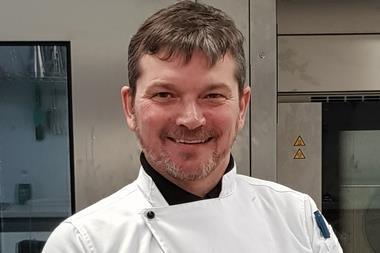
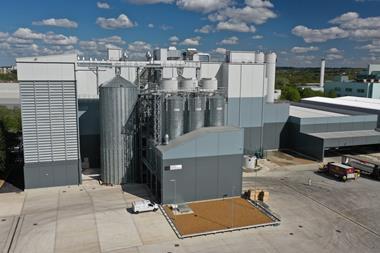

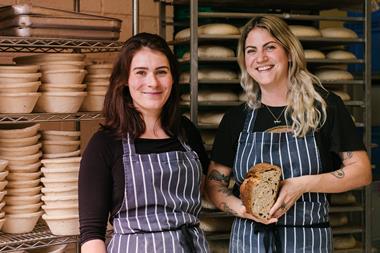

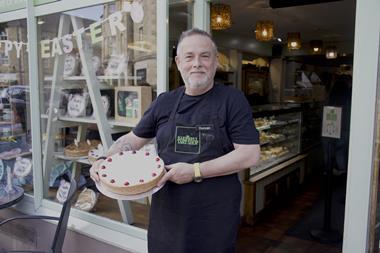
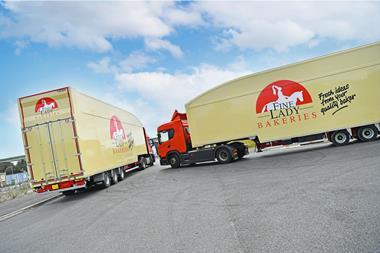

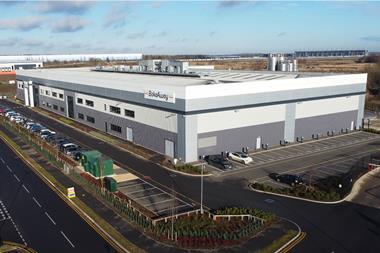


No comments yet